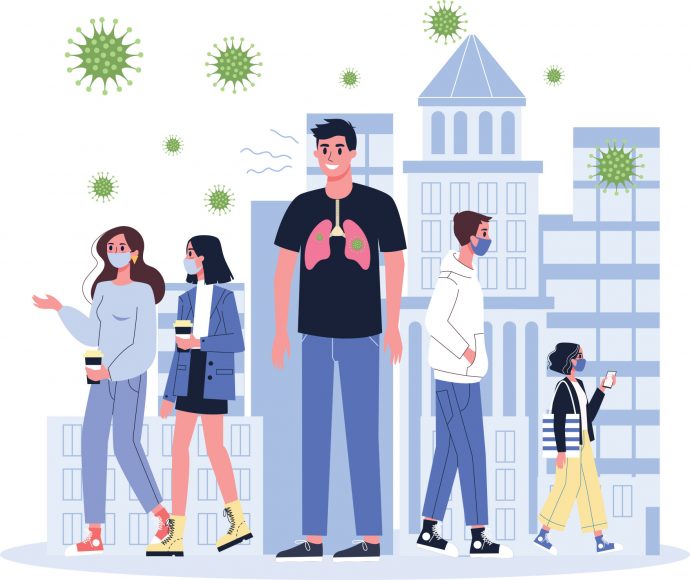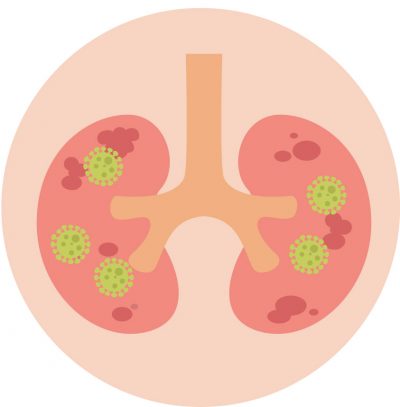Compared with children, adults have a stronger immune system. However, do you know that adults may carry viruses without being aware of it? You look healthy and well on the outside, but you might be bringing home an illness and putting your family at risk.
Such a person is known as a carrier, i.e. someone whose body houses a disease and is able to transmit the disease to others. The method of transmission is dependent on the type of disease – whether it is airborne, or if it spreads through water or direct contact.
Are carriers at risk of the disease? The answer is almost always yes. It’s usually a matter of time before his immunity is overwhelmed, especially if his immunity dips for any reason, e.g. due to stress or lack of sleep.
An asymptomatic carrier is a person who has the disease but does not show any symptoms. This normally means that the person may unknowingly spread the disease while remaining undetected. As expected, this can have severe repercussions, especially as it is unlikely that the carrier exercises any special restraints to prevent the transmission of the disease. This is what we went through with COVID-19, and why the government placed a Movement Control Order in a bid to prevent the virus from spreading quickly.
Other than COVID-19, there are other infections which can be carried and spread unknowingly, especially those that are airborne or spread through water droplets. These include influenza viruses and pneumococcal bacteria, which we can prevent. Disease-causing microorganisms can lurk in the throats of carriers and spread with every breath, exhalation, cough/sneeze, or even when talking with others.
Vaccination saves lives
Vaccines for active influenza strains are available on an annual basis. The pneumococcal vaccine is scheduled to be included in the National Immunisation Programme (NIP), as this disease has a high fatality rate and can cause numerous complications.
Pneumococcal disease is caused by a bacteria called Streptococcus pneumoniae. The ‘hidden danger’ of this disease lurks not just in the complications that it can cause, but also in how one can easily be an asymptomatic carrier and unwittingly infect loved ones.
The bacteria is transmitted via little droplets from the nose or mouth. However, lab tests suggest the bacteria can survive for long periods of time on surfaces. This means that other than droplet transmission, there is also the possibility of infection from contaminated surfaces.
Pneumo danger!
What makes pneumococcus something to be taken seriously?
- Easy person-to-person transmission.
- Causes many life-threatening complications, e.g. pneumonia, septicaemia, meningitis, middle ear infection, sinusitis, bronchitis.
Everyone deserves protection
While it’s important to vaccinate the ones most at risk, other members of the family should also consider getting vaccinated. You never know if you will come in contact with someone else who is a carrier, so it only makes sense for you to take the necessary steps to prevent this.
To achieve this, the best option available is still vaccination, as this will help build your body’s immunity to the disease, even if you have had it in the past.
Who are at risk?
- Infants & young children
- The elderly
- People with compromised immune systems
Keep your child safe
Prevention is the best cure – check with your child’s paediatrician on what vaccination options are available. Vaccinating your child can prevent the disease but at the same time, vaccination does not guarantee perfect protection. There is a small possibility of still getting pneumococcal disease, however the symptoms would be much less severe than for someone who has not been vaccinated.
An educational contribution by Malaysian Paediatric Association.









Comments